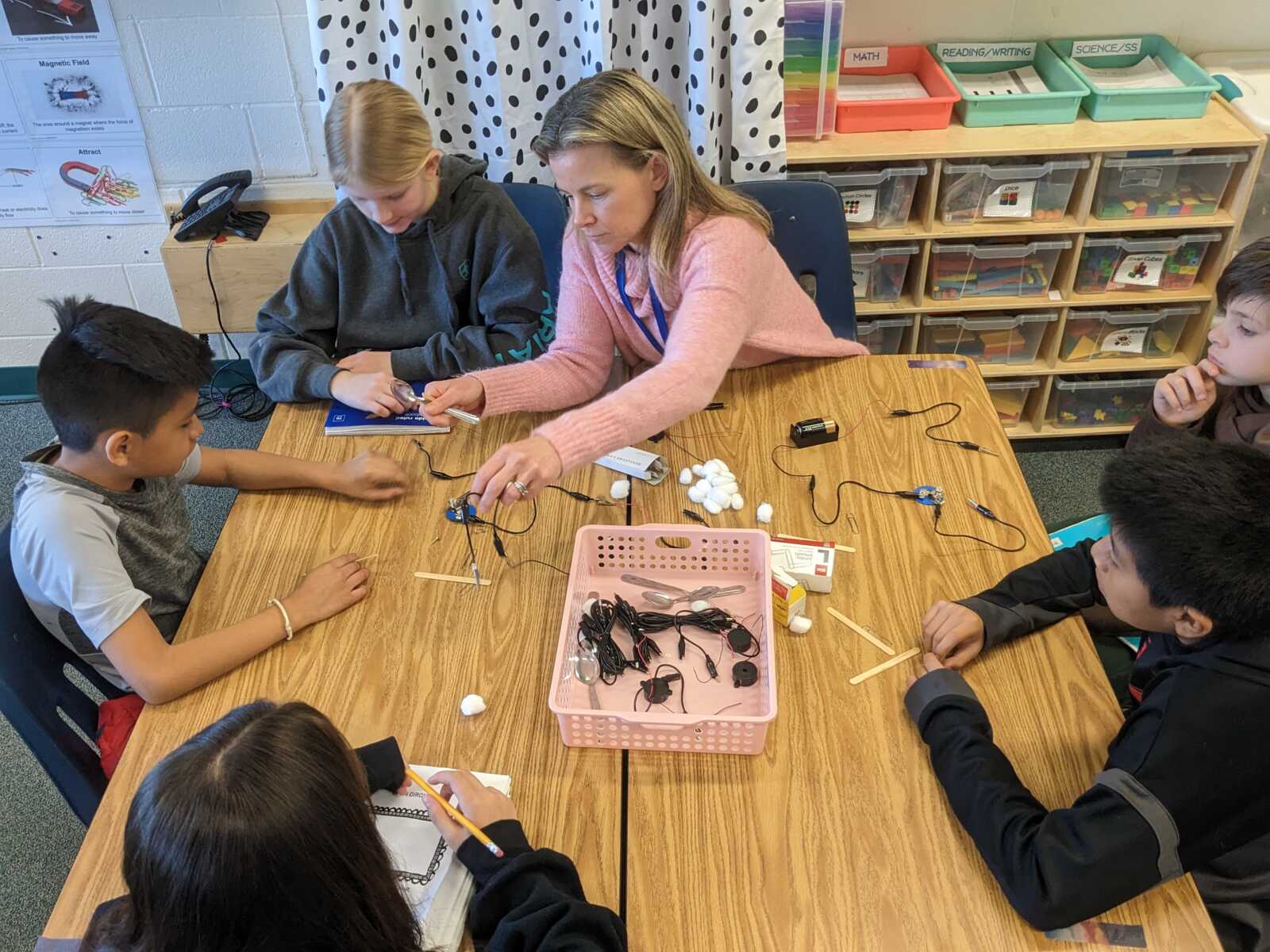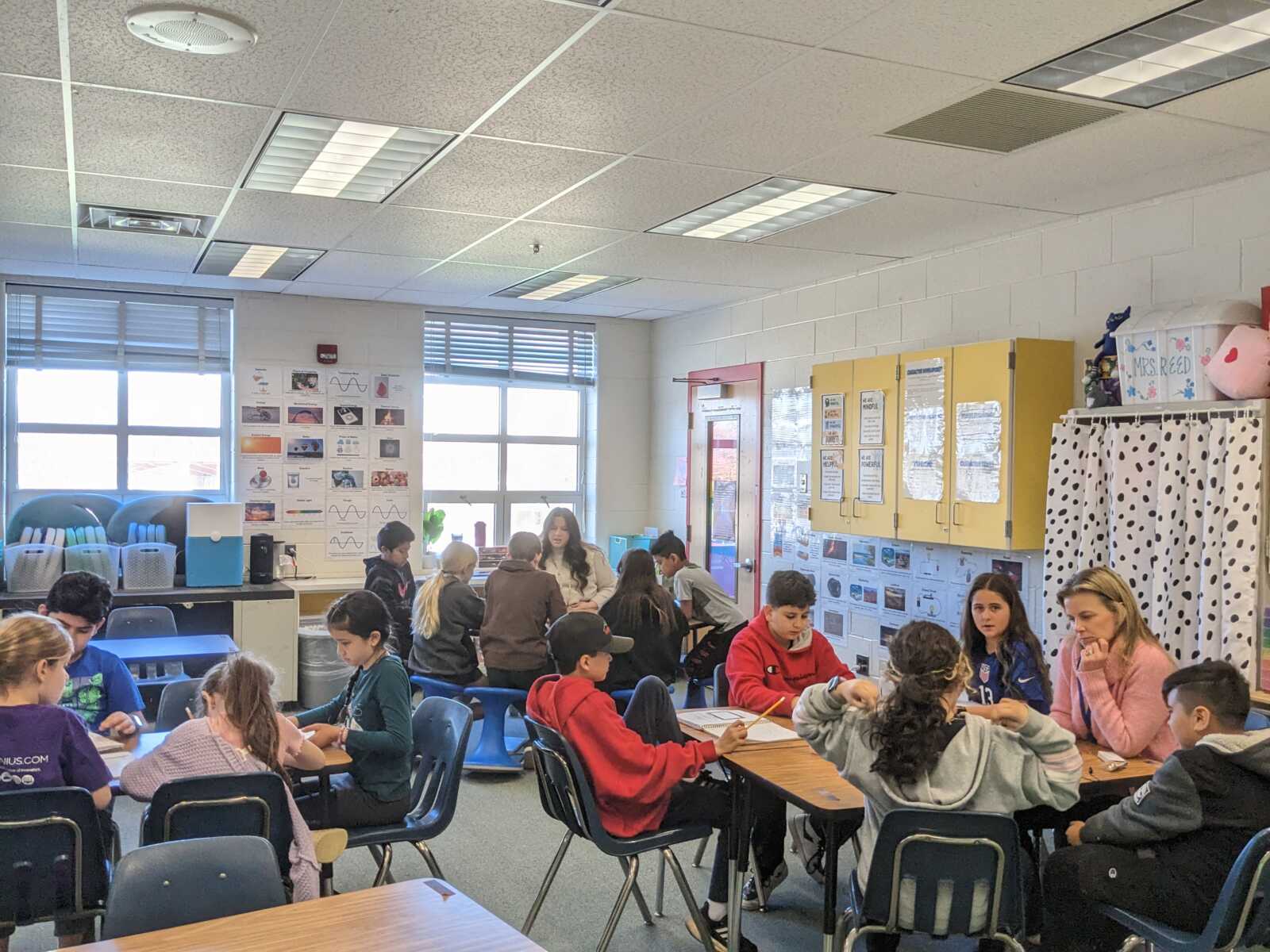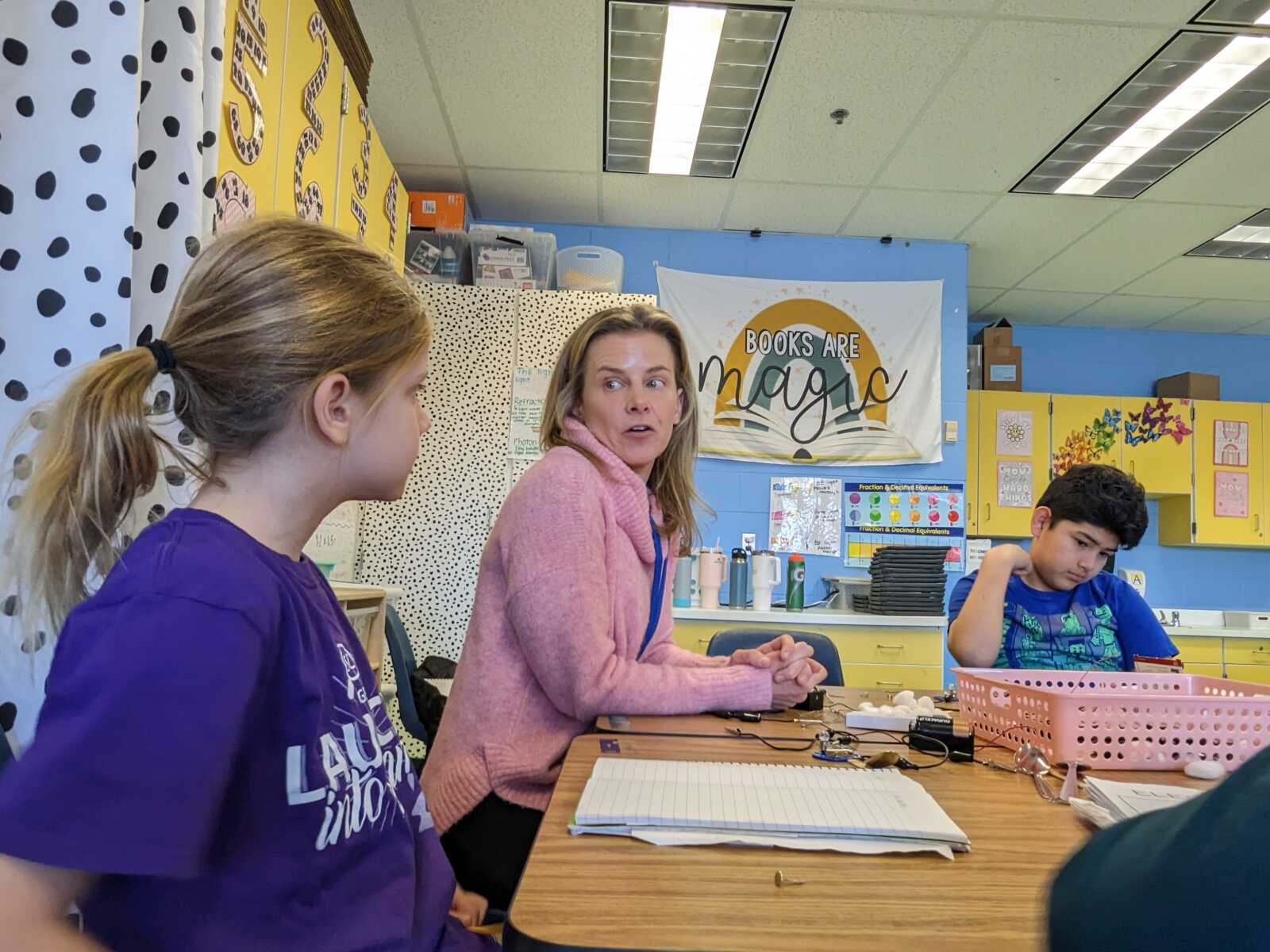When Carrie Lombardi left her New York City finance job to teach at Burgundy Farm Country Day School, she was surprised to hear clucking from a colleague’s classroom one day.
The students, she learned, were raising chickens as part of their science curriculum.
After recovering from her initial shock, Lombardi engrossed herself in the subject. In August 2022, she brought her experience with hands-on science lessons to Arlington Public Schools as the system’s first part-time science coach. Today, she works with Barrett Elementary School teachers to supplement their science lessons with experiments.
Barrett students will not be raising poultry but last week, fifth-graders were learning the difference between insulators and conductors by testing whether paperclips, popsicle sticks or cotton balls could carry electricity between a power source and a light bulb.
“My role here is basically to support the teachers to take science where they want to take science,” Lombardi said. “Having a science coach who can run and get the materials, or support the willingness in the class, it’s really opening up possibilities.”
The approach can get lost in an era of videos and devices, she says. During Covid-era remote learning, videos replaced student-conducted experiments. Lacking the bandwidth to pick experiments, gather supplies and squeeze the lesson into a 40-minute window, some teachers still lean on videos post-pandemic.
This impacted how students viewed science.
“‘Science is boring,’” Lombardi recalled pupils telling her. “‘We hate it. All we do is watch videos.’”
The school system currently provides science professional learning to all elementary educators who teach some science but it is not a requirement, according to APS science supervisor Dat Le.
By contrast, Barrett clocked a 30-point increase in its science standardized test scores after hiring a part-time coach to support teachers throughout the year, according to Kristen Parsons, the chair of an APS science advisory committee.
Earlier this month, Parsons and Le made the pitch for 25 sciences coaches like Lombardi to address science performance gaps tied to historically inconsistent science instruction, which Covid-era remote learning exacerbated. Looking to address gaps that exist at any school, the committee requests one per elementary school.
Parsons told Superintendent Francisco Durán and the School Board that the coaches are the committee’s only recommendation this year, given the tight budget year ahead and the proven impact coaches can have. The committee took a firmer stance this year compared to the 2021-22 school year, when it suggested at least five to be sent to schools where the return-on-investment would be greatest, should funding for more coaches be unfeasible.
School Board Chair Cristina Diaz-Torres signaled coaches would not make the cut this year absent “a magic wand” or “pot of gold.” Board members requested more information on where the coaches should be sent if a few could be made available, more data substantiating their touted benefits and descriptions of the science training that elementary teachers receive today.
The coaching requests respond to the committee’s concerns about pass rates for elementary science state standardized tests, called Standards of Learning, which took a hit during Covid.
“During the height of the pandemic when students were engaged in virtual learning, it appears that elementary science instruction was impacted,” the committee said at the time. “Anecdotal information from parents and teachers consistently points to the limited or lack of science instruction.”
Remote learning, however, exacerbated what the committee says is an underlying problem: “inconsistent and insufficient elementary science instructional time.”
“Science instructional time at the elementary level has been a challenge for many years. Efforts by APS to ensure equitable science instruction time have not been successful,” it said, noting that this disproportionately affects Black, Hispanic, English-learning and economically disadvantaged students, as well as students with disabilities.
Adding coaches could whittle away at these persistent gaps, says Parsons.
Le said the school system’s Science Office found teachers broadly support this recommendation. He notes the committee modeled its request on a similar infusion of math coaches in Arlington and the successes of science coaches in other Commonwealth school divisions.
“At our [Virginia Dept. of Education] meetings, other school divisions are starting to add science coaches in their schools, so this is not a new model. A lot of my counterparts have discussed the successes that they have had with science coaches in their school division,” Le said.
At Barrett, Lombardi says she has noticed her students already have a new attitude toward science.
“I’ve had students come back to me,” the coach said. “They’re like, ‘Ms. Lombardi, I remember.’”
Dan Egitto contributed to this report




